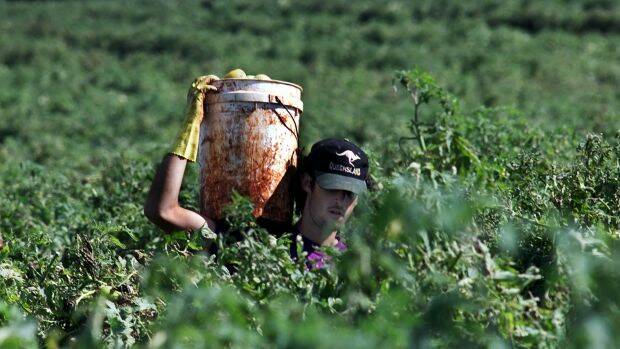
REGIONAL farmers can rest easy after an announcement on Tuesday from the federal government that the controversial 32.5 per cent ‘Backpacker Tax’ will be implemented at a reduced rate of 19 per cent.
Subscribe now for unlimited access.
$0/
(min cost $0)
or signup to continue reading
The proposed tax was first flagged in the 2015 Federal Budget and would hit the pockets of those on working holidays.
The reduced rate was proposed by Nationals backbencher Andrew Broad.
State Nationals MP Adam Marshall said he believed the decision was a common sense one.
“For a lot of primary producers the backpacker workforce is very important, there’s a sprinkling of seasonal workers throughout Armidale and Guyra and especially in Moree with the citrus farms.
“I think if this tax were to go ahead it would have had a serious impact on local agricultural workers,” he said.
National Farmers’ Federation president Brent Finlay said the reduction was welcomed by the agriculture industry.
“The NFF has always advocated for a rate of 19 per cent as a fair and reasonable measure.
“We are delighted today to see Government listen to its constituency and not put in place a tax that would have hurt farm production and, ultimately, the Australian economy,” he said.
Backpackers make up 25 per cent of the farm workforce each year and often do the jobs few Australians will.
Members of the agricultural industry feared the tax would drive backpackers to other countries for working holidays.
Mr Finlay acknowledged there would be changes to working holiday makers’ superannuation but believes the new measures are sensible and reflect the needs of backpackers and the farm sector.
“The nature of these types of working arrangements is that farmers need an immediate, temporary workforce and backpackers want immediate cash in their pockets to spend while travelling, so the approach taken makes sense.
“We now look forward to seeing further detail of today’s announcement and working with Government to make sure we have backpackers coming to our country who are eager to work on our farms and contribute to our rural and regional communities,” he said.
The tax was expected to make the government $500 million in revenue and will be cut from January 1 2017.
The Passenger Movement Charge will now be increased by $5 to recover the loss.


